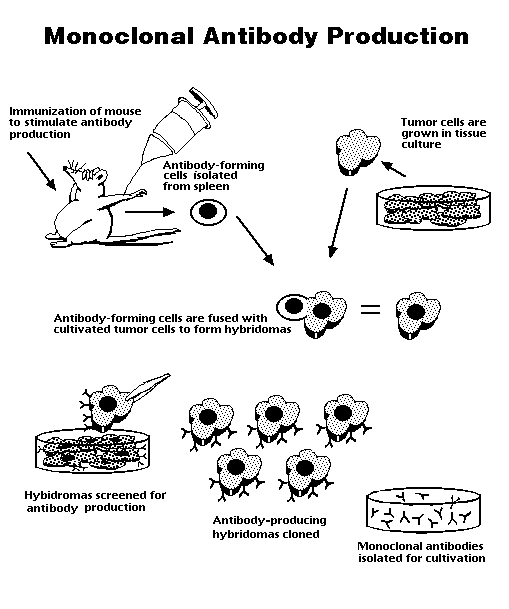How do monoclonal antibodies work to fight autoimmune disease?
1 Answer
Monoclonal antibodies are antibodies made in labs to specifically bind to target cells or proteins.
Hopefully, this may then stimulate the patient's immune system to attack those cells.
It is possible now to create a mAb specific to almost any cell surface target. mAb therapy can be used to destroy malignant tumor cells and prevent tumor growth by blocking specific cell receptors and also block TNF-α. a factor in autoimmune diseases.
Monoclonal antibodies used for autoimmune diseases include infliximab (Remicade) and adalimumab (Humara) , which are effective in rheumatoid arthritis, Crohn's disease and ulcerative Colitis by their ability to bind to and inhibit TNF-α.
TNF-α, (tumor necrosis factor alpha) is an adipokine involved in systemic inflammation involving cytokines (cell signaling proteins) secreted by adipose (fat) tissue.
This way the inflammation is decreased, which is a major symptom of autoimmune diseases.
(Wikipedia)
 Monoclonal antibody production from bio.davison
Monoclonal antibody production from bio.davison


